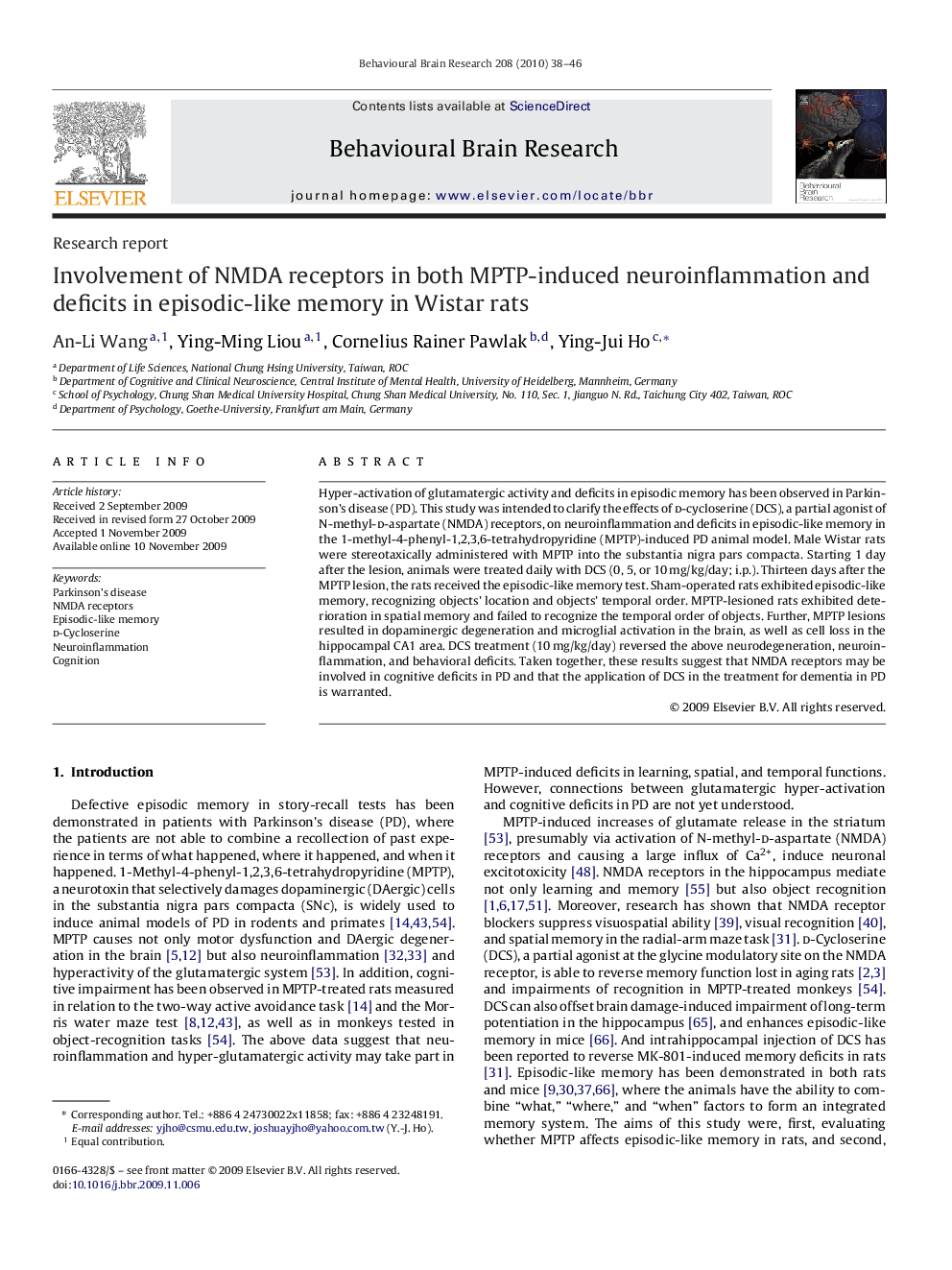| Article ID | Journal | Published Year | Pages | File Type |
|---|---|---|---|---|
| 4314274 | Behavioural Brain Research | 2010 | 9 Pages |
Hyper-activation of glutamatergic activity and deficits in episodic memory has been observed in Parkinson's disease (PD). This study was intended to clarify the effects of d-cycloserine (DCS), a partial agonist of N-methyl-d-aspartate (NMDA) receptors, on neuroinflammation and deficits in episodic-like memory in the 1-methyl-4-phenyl-1,2,3,6-tetrahydropyridine (MPTP)-induced PD animal model. Male Wistar rats were stereotaxically administered with MPTP into the substantia nigra pars compacta. Starting 1 day after the lesion, animals were treated daily with DCS (0, 5, or 10 mg/kg/day; i.p.). Thirteen days after the MPTP lesion, the rats received the episodic-like memory test. Sham-operated rats exhibited episodic-like memory, recognizing objects’ location and objects’ temporal order. MPTP-lesioned rats exhibited deterioration in spatial memory and failed to recognize the temporal order of objects. Further, MPTP lesions resulted in dopaminergic degeneration and microglial activation in the brain, as well as cell loss in the hippocampal CA1 area. DCS treatment (10 mg/kg/day) reversed the above neurodegeneration, neuroinflammation, and behavioral deficits. Taken together, these results suggest that NMDA receptors may be involved in cognitive deficits in PD and that the application of DCS in the treatment for dementia in PD is warranted.
